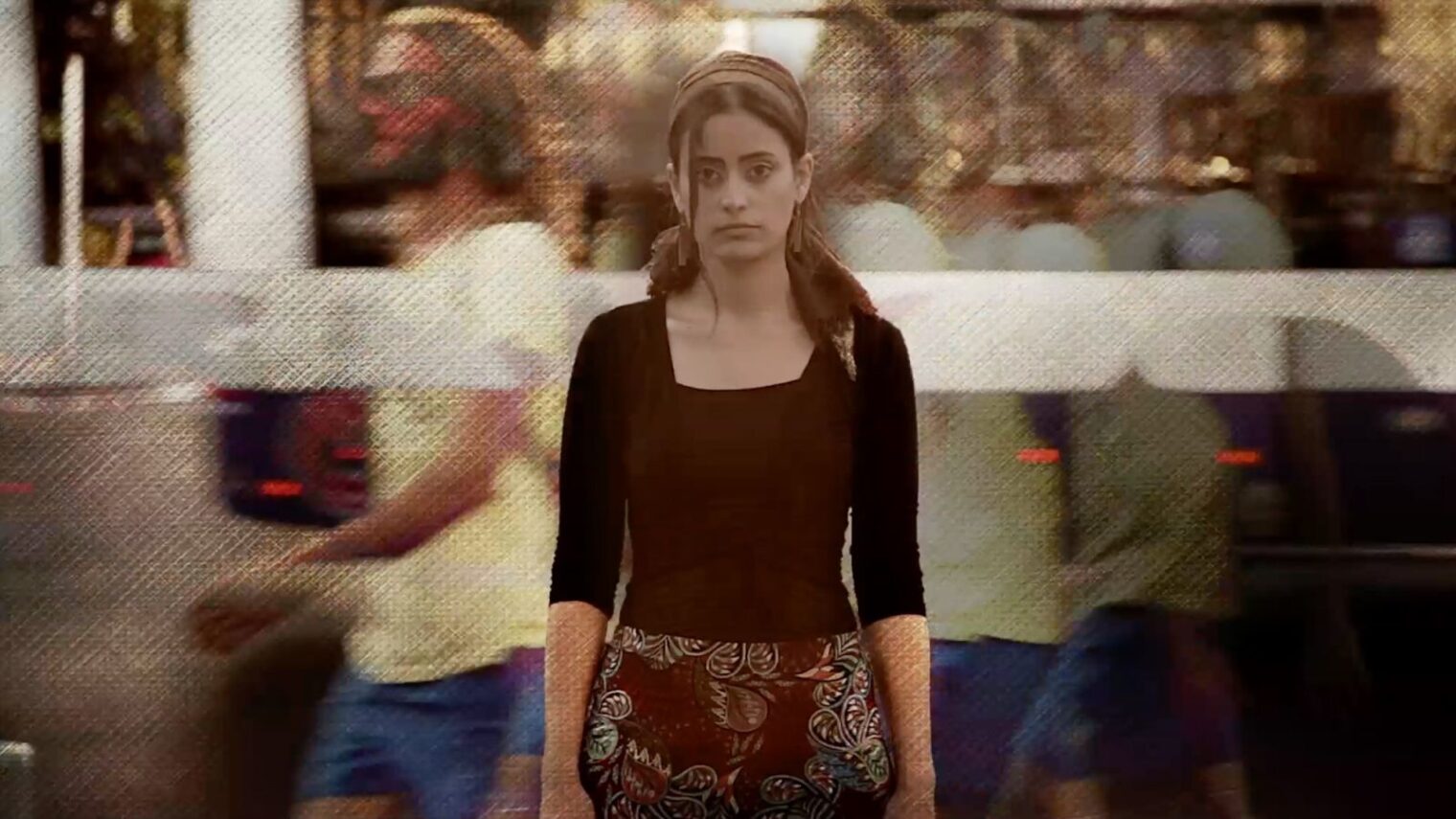Rinat Gutman could have blogged her feelings of shock and anger toward Israeli rabbis, police officers, performers and politicians who’ve used their celebrity to take advantage of women in the worst way. Or maybe she could have painted a picture about it.
But the feelings that bubble up inside this 35-year-old rabbi’s daughter from Jerusalem are best expressed in rap music. So when a Safed kabbalist she had once consulted was arrested on July 1 for allegedly molesting several women, she ended a five-year recording hiatus with a powerful new song and music video poking bitter fun at the phenomenon.
Shirat Ha’asavim Hashotim was released August 9. The title literally translates to “Song of the Weeds” but in Israeli slang it refers to seemingly respectable people who commit despicable crimes.
Playing nine different characters in the video, Gutman raps in Hebrew except for the last line, in which she declares in English, “We gotta stop that s—.”
“My message is that I want women not to be afraid to stand up and speak, and not to go blindly after people in positions of power,” she tells ISRAEL21c.
‘You don’t have to show off your body’
Appearing in the video dressed in a paisley maxi-skirt with a scarf tied around her long brown hair only puts a sharper sheen of sass on that message.
Whereas in her 20s she set aside the religious practices with which she was raised, Gutman has made her way back to faith on her own terms and wears a head covering following her recent marriage.
“Rap usually comes with a lot of showoff and is not modest at all. Part of my message is that you don’t have to show off your body as a woman to be a good singer and even a good rapper,” says Gutman. “It’s about your music and what you say. I think people actually hear your message better when they are not focused on your body.”
Now working on a new album, Gutman generally raps in Hebrew though she speaks fluent English, having spent two years of middle school in Canada while her parents were Jewish Agency emissaries. She also lived in New York for a year about a decade ago, and has performed shows in the United States, England and India.
In 2009, she recorded a video of her song Agas (“Pear”) in England with Jewish Jamaican singer David Dan. It speaks of relationships running hot and cold, and includes some English lyrics.
Gutman is often asked how a “nice Jewish girl” ends up as a rapper.
“When I was six, my mom sent me to learn piano. Though I lost patience with that after two months, later on I continued to learn keyboards and I like all types of music. I have also performed as a jazz singer, but rap really allows you to speak your mind.”
At 16, she was intrigued by the iconic rap music in the 1995 movie Dangerous Minds, and wrote her first rap song in reaction to her cousin’s death in a terror attack about 12 years ago. Not long after, Gutman began performing locally with some rappers who moved to Israel from the United States.
Though strictly religious Jews believe women are forbidden to sing in front of males, Gutman respectfully rejects that stricture. “When you have a talent, I believe you should do something with it,” she says.
Many of her songs have been about social protest. Living in Jerusalem has also been an inspiration. “I’m very connected to this city,” Gutman says.
After a few years off from performing, she is now back in a big way. She finished recording Shirat Ha’asavim Hashotim in just one week, working with videographer Elahn Zetlin of Chutzpah Media, an Australian immigrant who films for ISRAEL21c. The song was produced by Israeli reggae group Hatikva 6 members Amit Sagie and Lior Shulman (also appearing in his persona as rapper Hamesiach) at Jaffa Sound Art.
“I want to continue getting back into the studio, and I want to sing more and not just rap,” says Gutman, who enjoys listening to Adele, Lauryn Hill, Aretha Franklin, Corinne Bailey Rae and Tanya Stephens. “I want to record more and do different styles of music, and collaborate and perform with other artists.”
Also watch for more recorded works performed by Gutman in English.

















